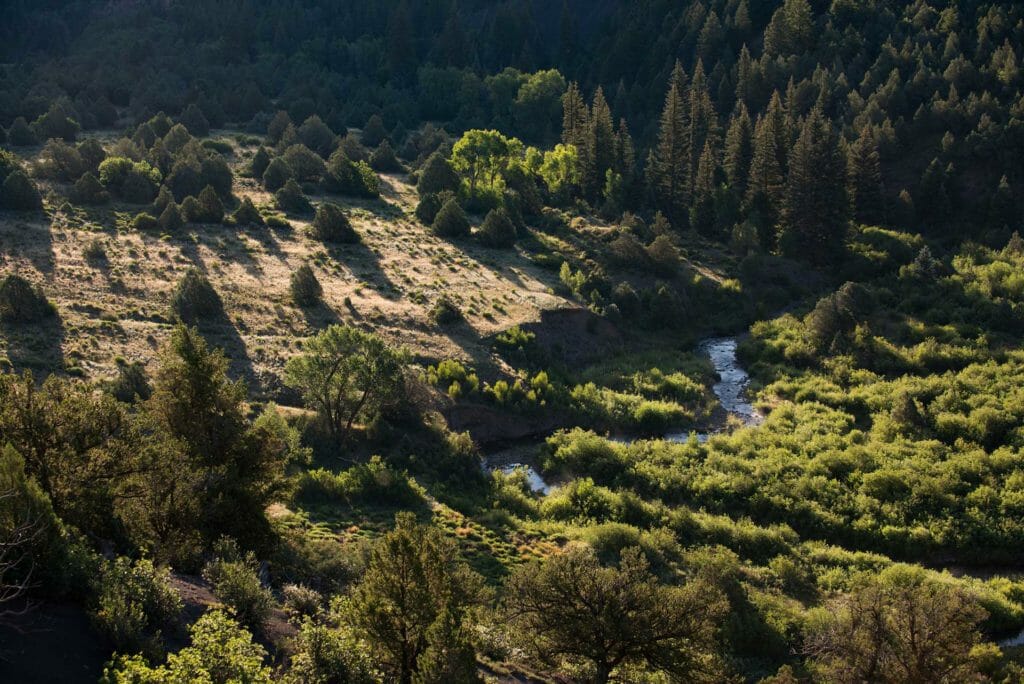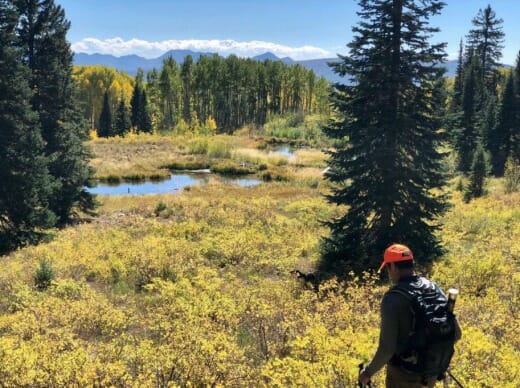With a pump of their fists and a tip of their caps, Colorado sportsmen and women are celebrating another successful step toward protecting some 400,000 acres of prime public lands and commending the U.S. House Committee on Natural Resources for advancing the Colorado Outdoor Recreation and Economy (CORE) Act out of committee this week. The legislation introduced by Colorado Rep. Joe Neguse and Sen. Michael Bennet in January aims to protect some of the state’s premier cold water fisheries and critical wildlife habitat, from the headwaters of the Colorado to the source of the Animas.
The comprehensive CORE Act packages several popular proposals into a single bill that will protect public lands across the state. It attempts to establish permanent protections in the White River National Forest along Colorado’s Continental Divide and in the San Juan Mountains in southwest Colorado. It withdraws approximately 200,000 acres in the Thompson Divide south of Carbondale from future oil and gas development and sets a formal boundary for the Curecanti National Recreation Area surrounding Blue Mesa Reservoir while increasing public fishing access along some 16 miles of the Gunnison River and its tributaries. The legislation also would designate the first-ever National Historic Landscape around Camp Hale, a winter warfare training ground along the upper Eagle River used by the U.S. Army’s 10th Mountain Division during World War II.
Notably, the bill is the first major Colorado public lands legislation to pass Committee in the U.S. Congress in more than a decade, doing so with a 23-15 vote.

For years, Trout Unlimited has fought to protect these important public lands on behalf of Colorado’s sportsmen and women, so we applaud Rep. Neguse and his HNRC colleagues for advancing legislation that shares our commitment to honoring the values of hunters and anglers. From the prime big game habitat and unique native cutthroat trout fisheries of the Thompson Divide to the pristine headwaters flowing from the San Juan Mountains, the components of the CORE Act answer the call from Colorado sportsmen and women to conserve and enhance the best of Colorado’s great outdoors for generations to come.
Now we ask the remainder of Congress to do the same.
Despite some partisan friction from inside the Beltway, the reality is that the CORE Act was built by Coloradans from the ground up through local input and decades of collaboration between sportsmen, ranchers, small business owners, veterans, local elected officials, outdoor recreation organizations, and other diverse stakeholders. The result is a bill designed to boost Colorado’s outdoor recreation economy, honor our veterans and ensure that Colorado’s hunting and fishing traditions continue by protecting watersheds, expanding public access and improving critical wildlife habitat.
What’s not to love?
“The CORE Act is near and dear to my heart because I live at the base of Thompson Divide and I’m an active hunter and cattle rancher,” said Tai Jacober, whose ranch resides along the Crystal River near Carbondale. “This bill has been put together very carefully over a decade of work and crosses all boundaries. We should do everything we can to support it.”
Jacober’s sentiment is echoed throughout the landscapes touched by the CORE Act, yet some of our state’s elected officials still need more persuading to support the bill.
Following the committee approval, TU is counting on the congressional delegation to help move this bill to the House floor for a vote. Our work is far from finished.
We encourage Colorado residents and public land lovers alike to reach out to the state’s elected representatives and voice your support for the CORE Act. As Rep. Neguse testified to his peers on the Committee: “Our public lands in Colorado really define who we are.”
Scott Willoughby is TU’s Colorado coordinator for the Sportsmen’s Conservation Project. He lives, and fishes, in Eagle, Colo.



